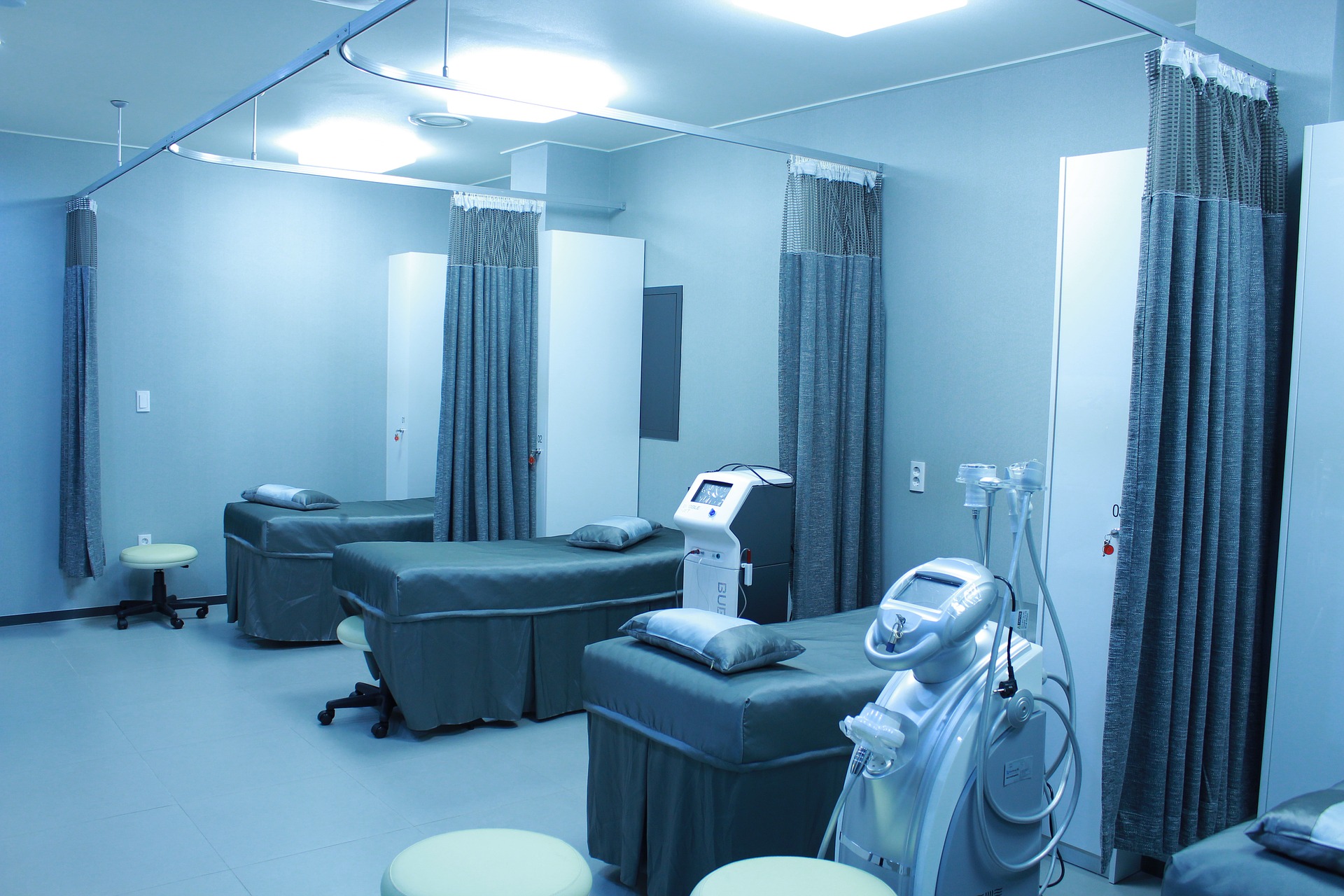It is the question that many experienced GP’s and Specialists grapple with in their day to day life. Am I ready to start my own practice? Taking the leap into private practice can greatly improve lifestyle, and wealth creation, as well as increased job satisfaction. These 5 tips will define the key steps to starting your own practice
The big question – Am I Ready?
Starting up any new business is a huge undertaking. Private practice is no exception to this. While some docs will wake up one day and decide that they are ready, some will mull it over for some time. However you make the decision, it is important to weigh up whether the commitment is right for you.
What is your motivation for starting your own practice?
It is important to really think about why it is that you are considering going into private practice. Improved Lifestyle, wealth and income opportunities are all great reasons but it is important be realistic about the challenge, and not too optimistic.
Qualified as a doctor, qualified as a leader?
You have reached a high level of experience as a doctor. However being a great professional does not necessarily make a great businessperson. Being open to developing new skills is essential for anyone getting into private practice.
Most medical professionals have strong managerial skills, and these will come in handy, but there are other areas to consider such as financial and legal obligations, HR & budgeting, IT and more. You are not expected to become an expert in these areas, but a general understanding is required.
Practice operation, changing environments
As anyone who has spent any amount of time in healthcare knows, it is an industry that is regularly changing, and it can have a big effect on the way that medicine is practiced. This will affect the way that your practice operates, and your finances.
Major factors include tax regulations, economy, government, technology and legislation. These all challenge the way that you conduct business. Accepting and embracing these challenges is the first step to having a modern, flexible workplace environment.
Future focus
Even before beginning your practice journey it is important to identify a fair idea of where you want to be in the not-too distant future. Exit strategies such as selling up, mergers or partnership are all viable options. The sooner that you can adopt a clear exit strategy, the better prepared you will be when it is time to move on.
Patients, Property and Practice Placement
The location of your practice is so important to how your practice will operate. You’ll need to identify your ideal patient, supply and demand in a particular area, and accessibility. You will need to do your homework on this and research a prime market in a prime location that you want to serve.
Accessibility factors such as public transport and parking are important, and proximity to other health professional services and hospitals can play into your favour when looking to acquire patients. Can people access your practice easily?
Area Growth
This is an important and often overlooked consideration when choosing an area for your practice. By placing your practice in a high-growth suburb, the demand for quality health-care will rise. Keep this in mind when choosing a property to operate out of, ensuring that your practice has the resources and space to accommodate this growing demand.
Location
According to the Royal Australian College of General Practitioners general practice management toolkit, there are two approaches that can be made when deciding on location:
– Flexible: If you are open to relocation, moving to an area where there is greater demand for your services might mean that you can get your practice operating more quickly. It is easier to generate business in an area where patients might be currently underserved in your specialisation.
– Established: If you have decided to start your practice in an established area, with your family and schooling commitments in mind, it might be more difficult to build a patient base as they are already being served. This is more common for GP’s than Specialists, and finding a hole in the market for an established area could prove highly successful for your business.
Property Specifications
The physical specifications of your property needs to match your fitout plans. It also needs to accommodate all staffing requirements, both now and into the future. Keeping your practice growth in mind is also essential. Is your new property big enough to accommodate expansion plans?
The building must also have council approval to be operated out of as a medical practice.
Developing a Business Plan for your Practice
A business plan is essential to identifying the success that you want to achieve through your practice. It is also an important tool for measuring your progress against pre-set goals that you want to accomplish.
Now more than ever, new practice owners need to make sure that they are implementing, and following a business plan for their practice. By breaking the steps down into weekly, monthly and annual goals. Practice owners can not only fast-track their practice success, but it allows them to compare their results more accurately against peers in their field. While some business advisors can over-complicate this process with a lengthy, tedious and hard to follow plan, it doesn’t need to be so. Usually outlined in a 2-5 year plan, the plan can be created in roughly 50 hours and usually 2-3 meetings, with the help of a business/medical practice advisory provider. Regular check-ins with your medical practice adviser are important for accountability and ensuring goals are being reached.
Goal Setting
Once a business plan has been implemented, it is time to complete short term goals. This is done through benchmarking against industry leaders to see where your practice stacks up in specific areas, and what can be done to achieve similar results. Comparisons to world class industry leaders using critical analysis of budgets, costings, product value and more, allows us to fast track the performance potential by scaling up your strengths and improving weaknesses.
How much does a Practice cost?
There are many factors that influence how much it is going to cost to get your practice up and running. Estimates range from as little as $40,000 for a regional practice, and around $200,000 – $500,00 for metropolitan. It helps to get independent financial advice when going through these numbers.
Once you figure out the cost, it is time to assess whether you will fund it through a loan, savings, or otherwise.
Tax Strategy
Sit down with your accountant from the beginning, and develop an effective, robust tax strategy that ties in with your business plan, to protect you from any tax issues that may arise. Legislative changes, small business tax discount, turnover threshold and business law tax simplification have direct impact on your practice’s bottom line.
Cash Flow
Heralded as one of the make or break financial focus points of any business, having strong cash flow is so important, especially in the early days of your practice. If your practice is financed by a loan, make sure that repayments are in line with projected cash flow.
Tip: If you can minimise your repayments in the first six months while you are still building your client base, this will grant your practice the required cash flow needed to stay operational.
Partnering with other doctors
Bringing in doctors is a great way to service a larger patient base, and it helps with covering expenses. It is important to consult your financial advisor to see whether other doctors will be necessary to your practice. As a general rule, GP’s for example; pay the practice owner 30% of their income to cover costs.
Into the Old or In with the New?
A big decision when moving into private practice, you must decide whether you want to establish a new practice or take over an existing one. Generally speaking, it is cheaper to start from scratch, and it also means that you can tailor the fit-out and design to your specifications.
To Lease or Purchase?
Most new practices require financing to cover leasing, resource, equipment and other business running expenses. If you decide to go down the leasing route, a first right of refusal may be an negotiation option after a few years or five down the track.
The investment benefits of purchasing are obviously a major drawcard for buying the property that you want to operate out of. Consult an expert financial advisor and consider all options and costings when deciding to lease or purchase.
Fit-Out Financing
It is more common than not that you will want to do your own fit-out on your new site, especially for practice startups. Do your research on the best professional medical practice fit-out service providers and make sure that you are happy with the design as it is permanent. Take the time to get it right.
Staff, Support staff & IT
As any business owner will tell you, you are only as good as the staff you hire. Include your staffing requirements in your business plan for admin, IT and growth. Meeting adequate technology requirements from the beginning paves the way for optimal patient information handling and meeting compliance requirements.
Insurance and Clear Policy
If it is the first duty of the medical professional to provide the best patient care, and practice medicine safely and effectively, then clear policy must be implemented across the entire staff body of any practice. Clear policy and practice procedures must be reviewed every 12 months or under circumstantial discretion. Most executive issues are a result of inadequate communication of policies to the staff members involved. Policies around staff behaviour, equipment and resource knowledge, handling of patient information and effective processing of fees, just to name a few. This leads to indemnity insurance. While compliance procedures and clear policies will minimise risk, indemnity insurance will provide the necessary protection for your practice.
Marketing
Many new practice owners make the mistake of thinking that clients will simply roll in, without credibly gaining their trust. A naive approach in any business let alone health care. Marketing is essential for any business, and just because you are in the business of helping people, doesn’t meant that people know who you are. Branding goes a lot further than a logo and a letterhead, or a social media page. Offer value to your current and prospective clients, build a community of loyal fans and you will reap the benefits now and into the future.
Compliance and Documentation
In the highly regulated industry of health care, it is important that all of your paperwork is up to date, before you open the doors to the public.
Medicare Provider No.
In order to work in private practice in Australia, both GP’s and Specialists need a Medicare Provider No. It allows patients to claim Medicare rebates on the services your practice provides.
AHPRA
Any and all changes to your practice details will need to be submitted to the AHPRA.
ABN & ATO Requirements
Like any business you will need to apply for an ABN (Australian Business Number) and potentially you will need to register for GST. To find out whether you’ll need to register for GST, contact the ATO (Australian Tax Office) about your obligations as a private practice. Make sure to consult your accountant as they can offer valuable advice about your tax obligations and how you can optimally structure your tax for the best results possible.
General Practice & Specialist accreditation
While this is not essential, most medical practices in Australia get accredited. Not only does this give your staff and patients peace of mind, it allows you to access the Practice Incentives Program offered by the Government. This means you can apply for better incentives for practicing medicine.
Support Network
Getting the right advice for your new practice is essential to get off to the best possible start you can. Surround yourself with knowledgeable professionals such as accountants, financial advisors, legal and business advisors. Practice managers can handle the administration from a human resources standpoint right through to business development.
While your practice, and patient base grow, you will come to rely on this growing support network of professionals to get the most out of your business. It is important to consult the right people from the beginning.
Nitschke Nancarrow have over 20 years of experience in helping healthcare workers, medical professionals and doctors to identify their financial goals, and exceed them. In the past two decades of specialising in the medical sector, we have built a comprehensive understanding of the needs of our individual clients, as well as the business requirements that are unique to the healthcare industry. Our expertise allows us to provide the highest value to our clients, and to you.
Your business grows with ours. We are constantly updating and adding innovative resources that provide the vessels for converting business targets into reality. Using the latest technology we can offer financial planning services, accounting, and tailored business coaching structures and templates. This allows us to plan for our client’s future, set achievable goals, implement risk management solutions, improve communication and accessibility to ensure that our clients are on track for every step of the way throughout their journey throughout their financial life.
Read on – 5 Steps to Financial Freedom for the Modern Medical Practitioner
Do you really need an Accountant that Specialises in Medical Practitioners














